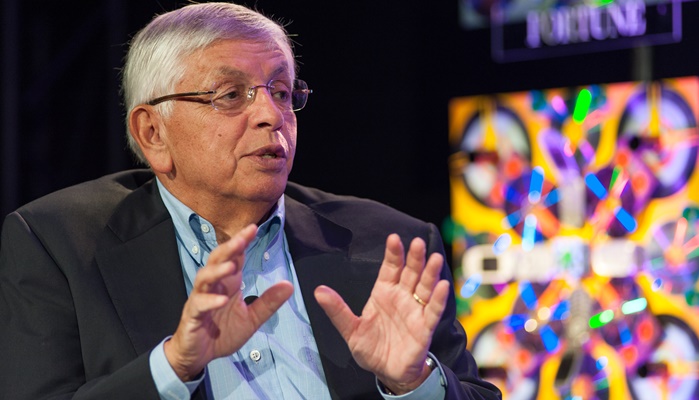David Stern – the former NBA Commissioner was one of those individuals who was opposed to legalizing the sports betting industry in the United States and in 2012 stated that if sports betting was legalized it would ‘irreparably injure the NBA in a manner that cannot be adequately calculated in dollars’.
Since then Stern has had a change of heart over the issue of sports betting and is now pushing for an amendment to be made to the Professional and Amateur Sports Protection Act of 1992 (PASPA) which prohibits state sponsored sports betting. Stern recently spoke at the American Gaming Association’s Global Gaming Expo in Las Vegas and called on other leagues to also support the move to legalize sports betting in the U.S.
A number of sports leagues including the NBA had supported PASPA in the past and thereby limited sports betting to Nevada and to some extent Delaware. The American Gaming Association estimates that nearly $90 billion in sports betting will be made on football this season and almost all of that money will go to illegal sports betting operators. Nevada’s legalized sports books were estimated to have taken in only around $1.69 billion in 2015. Stern believes that regulators need to legalize the sports betting industry in order to capitalize on the lucrative market and to ensure that these vast sums of money do not go into the hands of unsavory operators.
Those that oppose the legalization of sports betting believe that it could result in match fixing and player corruption and leave a permanent blemish on sports in the U.S. while others believe that legalizing sports betting will have a negative impact on society. Stern played down these concerns stating that a proper regulatory framework and a strong gaming association would ensure that sports’ betting takes place properly and the view that sports betting would have a negative impact on society is completely outdated.
Adam Silver, who is the current NBA successor is also in favor of legalizing sports betting and along with Stern believes that it should be the choice of each state and each league to decide if they want to be a part of the sports betting industry or not. In a statement, Stern said “If a sport says, ‘I don’t want to have my games bet on,’ then they should have the opportunity to opt out. If a state says, ‘I don’t want to have betting’ for any number of reasons, they don’t have to have betting. And I think that makes it a really good situation. It’s sort of a coalition of the wanted and the wanting”.
Stern went on to say that his heart tells him that sports betting could become a reality within the next three years but his head tells him it will most likely take between five to ten years.



